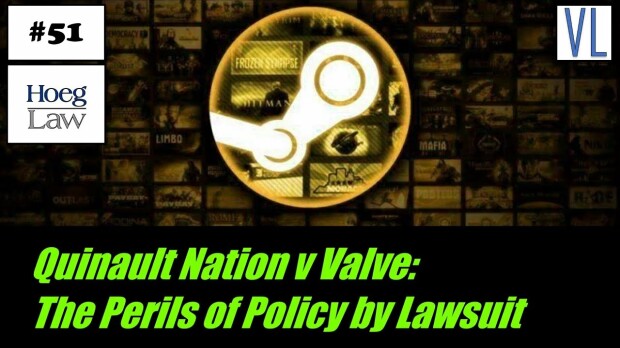
Aboriginal Tribe File Lawsuit Against Valve Corporation
A lot has been said about video game developers crossing the line into gambling in recent years, with loot boxes, in-game purchases and “skin” gambling—whereby players bet with in-game items that can also be bought and sold—taking center stage.
A few of these arguments have come to a head in 2019, with some sites being banned and with many developers rejecting loot boxes, and we could see another major development thanks to the aboriginal tribe Quinault Indian Nation and their lawsuit against Valve Corporation.
According to a recent report, the officially recognized Indian tribe are claiming that Valve Corporation are facilitating illegal gambling by allowing players to buy and sell in-game weapons. They are concerned that the lack of regulation for Valve Corporation gives them an unfair advantage, as it means they don’t have to abide by the same gambling laws as Indian gaming casinos do.
Valve Corporation and Quinault Indian Nation
Valve Corporation are behind the popular Counter-Strike game, which is played on PC and has become a very popular eSport in recent years. A lot of “skins”, which are basically mods that change the look of certain weapons, are frequently bought, sold and even gambled on third-party sites related to this game, and it seems that this is what the Quinault Indian Nation have a issue with.
Quinault Indian Nation run the Quinault Beach Resort and Casino in Ocean Shores, Washington, and they believe that the aforementioned gaming developer have “subjected Washington developers to scams [and] unsafe gambling”.
The Lawsuit
Quinault Indian Nation filed a 25-page lawsuit outlining the details of their case, making some of the claims stated above in addition to the claim that Valve have been able to profit “handsomely” for many years as a result of these third-party skin trades, while making only “token efforts” to actually put a stop to it.
Quinault Indian Nation have drawn comparisons between what happens in this industry and the trade of real casino chips, noting that chips have no inherent value (just like the aforementioned “skins”) but that they can be traded for real money and gambled as if they were real money.
They go on to say that Valve are “well aware” that these issues exist, but that they simply don’t do enough to stop them, and at times even promote them. Whether the courts will think the same way remains to be seen, but it could have an impact on these “skin” trades and on Valve Corporation, who have also created top titles such as Half-Life.









